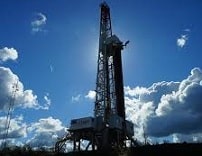The term diesel , which comes from the English expression gas oil , is accepted by the Royal Spanish Academy ( RAE ) in its dictionary, which also recognizes the notions of diesel and diesel as synonyms.
 Gasoil , gasoil or diesel is a product obtained from the distillation of crude oil , which is purified in order to remove sulfur and other substances. Diesel oil is used as fuel , especially in so-called diesel engines .
Gasoil , gasoil or diesel is a product obtained from the distillation of crude oil , which is purified in order to remove sulfur and other substances. Diesel oil is used as fuel , especially in so-called diesel engines .
It can be said, in short, that diesel oil derives from petroleum : an oleaginous fluid, extracted from maritime or continental geological beds, that combines various organic compounds. In order for it to be used, the oil undergoes a process known as fractional distillation, through which its components are separated and various products are obtained.
Among the products obtained from the distillation of petroleum are naphtha , kerosene , methane and tar . Also, as we mentioned above, diesel .
The use of the word diesel to refer to diesel fuel is linked to Rudolf Diesel , the German inventor who created an engine that also bears his name. This association arises since the diesel engine runs on diesel as fuel. Diesel, however, is also used in heating boilers.
About 75% of diesel oil is composed of saturated hydrocarbons , while the rest corresponds to aromatic hydrocarbons . The density of diesel oil is higher than the density of gasoline, which in turn offers a greater calorific value and emits a greater amount of carbon dioxide during combustion.
In the automotive field, the eternal discussion always arises as to whether diesel cars are better or worse than gasoline ones. Given this, we can determine that among the advantages attributed to the former are the following:
-They have engines that have more power because they operate at low revolutions.
-No less relevant is that the price of diesel is usually lower than that of gasoline.
-The car engines that use this first fuel that we are dealing with are more resistant and durable.
-In the same way, we must not overlook that diesel cars consume less fuel than the others mentioned.
-In this list of advantages we should not overlook the fact that these vehicles, as a general rule, have fewer breakdowns.
On the contrary, among the disadvantages of diesel cars compared to gasoline cars are the following:
-When buying them, diesel ones usually have much higher prices.
-In the same way, it must be emphasized that when they break down, the cost of repairs is usually much more expensive.
-When you have to choose and pay for mandatory insurance, it usually has a higher amount than that of a gasoline car.
-Likewise, it must be taken into account that when passing the ITV, diesel vehicles have to pay higher amounts.
